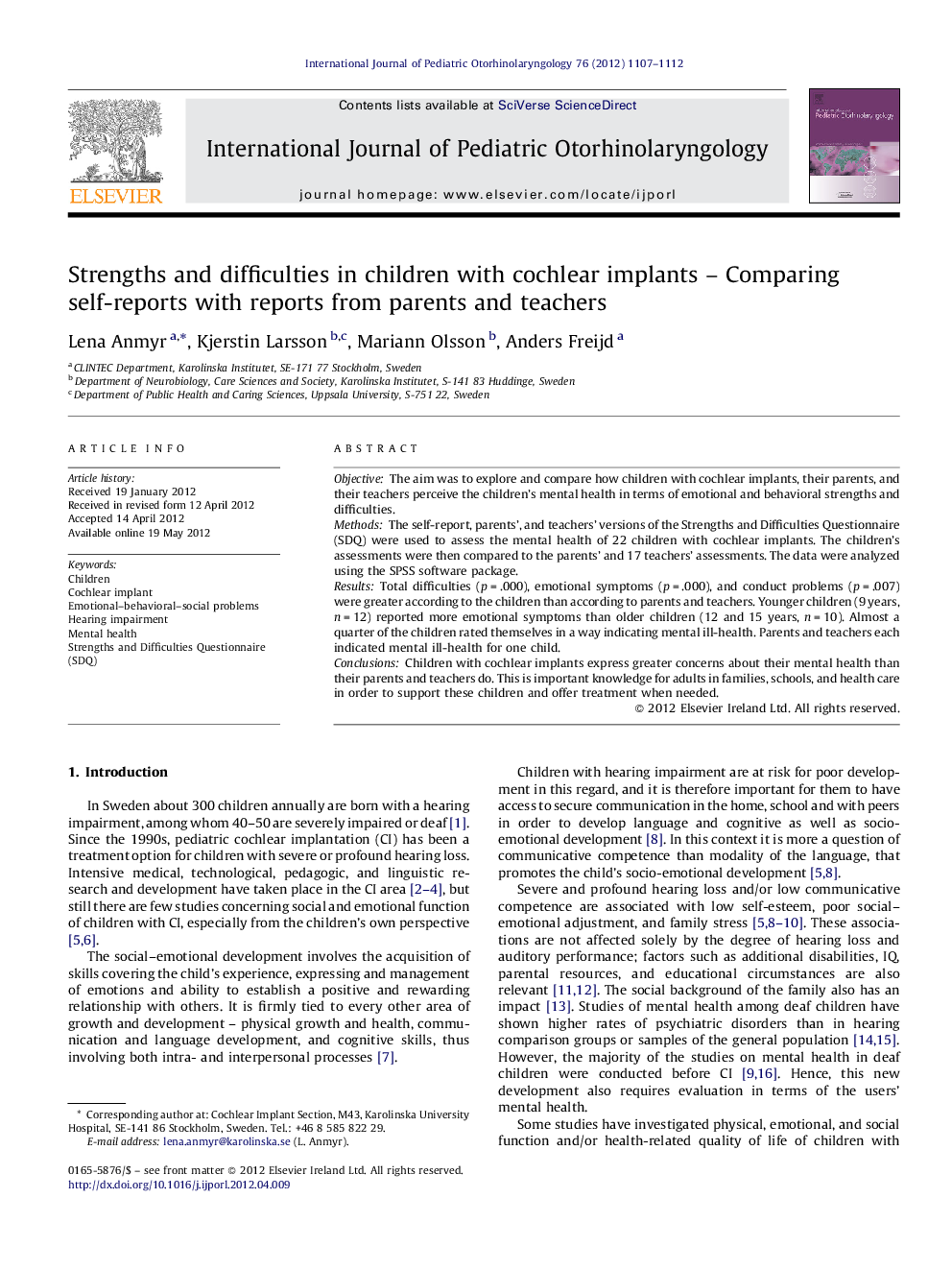| Article ID | Journal | Published Year | Pages | File Type |
|---|---|---|---|---|
| 4112681 | International Journal of Pediatric Otorhinolaryngology | 2012 | 6 Pages |
ObjectiveThe aim was to explore and compare how children with cochlear implants, their parents, and their teachers perceive the children's mental health in terms of emotional and behavioral strengths and difficulties.MethodsThe self-report, parents’, and teachers’ versions of the Strengths and Difficulties Questionnaire (SDQ) were used to assess the mental health of 22 children with cochlear implants. The children's assessments were then compared to the parents’ and 17 teachers’ assessments. The data were analyzed using the SPSS software package.ResultsTotal difficulties (p = .000), emotional symptoms (p = .000), and conduct problems (p = .007) were greater according to the children than according to parents and teachers. Younger children (9 years, n = 12) reported more emotional symptoms than older children (12 and 15 years, n = 10). Almost a quarter of the children rated themselves in a way indicating mental ill-health. Parents and teachers each indicated mental ill-health for one child.ConclusionsChildren with cochlear implants express greater concerns about their mental health than their parents and teachers do. This is important knowledge for adults in families, schools, and health care in order to support these children and offer treatment when needed.
